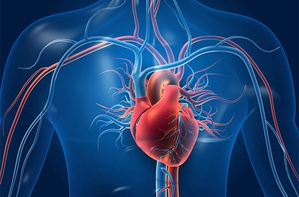New York, 9 March (IANS). A team of scientists from all over the world has discovered a new way to recover the heart again. This has received a new hope of treatment (ischemic heart failure), which leads to anemia.
Published in the NPJ Regimental Medicine magazine, a study conducted by QIMR Bergofer Medical Research Institute and collaborative institutions in Brisbane, Beller College of Beller College of Australia, reveals an approach to promote cardio myocyte spread.
Dr. Rham Abulisa, Assistant Professor in the Department of Cardiothoresic Surgery in Belller, said, “When the heart is unable to replace the injured cardio myocytis with healthy cardio myocytis, it gradually weakens, which leads to heart failure. In this study, in this study, we tested a new way to stimulate cardio myocitis to help fix the heart”
“We found that the expression of the gene involved in cell proliferation increases by stopping the flow of calcium in cardio myocytis,” Abulisa said.
“We stopped the entry of calcium into cells by stopping L-Type calcium channel (LTCC). It is a protein that controls calcium in these cells. Our results show that LTCC can be a target to create new drugs, which can increase the number of heart cells and re-create them.”
The study shows that preventing LTCC from medicines and genetically can re -form heart muscle cells. This occurs by changing the activity of calcineurin, which controls the development of the cells of the heart muscle.
This discovery may bring revolutionary changes in the use of current drugs controlling calcium entry into cells in heart failure patients. This is said by Dr. Tamer Mohammed, who is a co-writer and Cardiac Regitation Laboratory Director at Beller College of Medicine.
This research has shown that it is necessary to pay attention to the calcium signaling pathway to recover the heart. This can lead to new ways to treat people struggling with heart disease.
-IANS
AKS/AS
